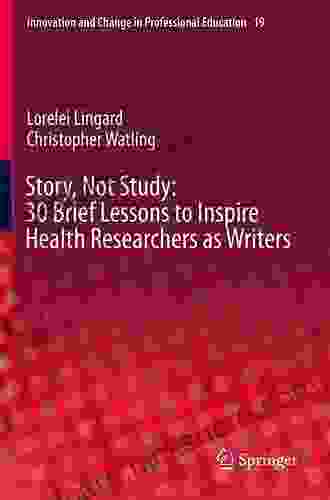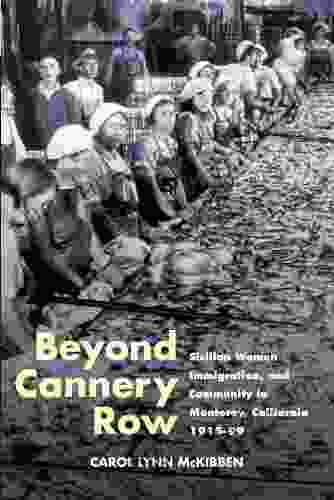30 Brief Lessons to Inspire Health Researchers As Writers Innovation And Change

As health researchers, we have a unique opportunity to make a difference in the world. Our work can lead to new discoveries, better treatments, and improved health outcomes. But in order to make our work accessible to a wide audience, we need to be able to write clearly and effectively.
4.9 out of 5
| Language | : | English |
| File size | : | 4201 KB |
| Text-to-Speech | : | Enabled |
| Screen Reader | : | Supported |
| Enhanced typesetting | : | Enabled |
| Word Wise | : | Enabled |
| Print length | : | 372 pages |
Unfortunately, many health researchers struggle with writing. They may feel that they don't have the time to write well, or they may not know how to translate their complex research findings into clear and concise language. As a result, their work may not reach its full potential.
This article provides 30 brief lessons to help health researchers become better writers. These lessons are designed to inspire innovation and change in the way we write about our research.
1. Write for your audience
The first step to writing effectively is to understand your audience. Who are you writing for? What do they know about your topic? What do they need to know?
Once you understand your audience, you can tailor your writing to their needs. You can use language that they will understand, and you can provide the information they need in a clear and concise way.
2. Be clear and concise
One of the most important qualities of good writing is clarity. Your readers should be able to understand your message without having to read it multiple times.
To write clearly, use simple language and avoid jargon. Be specific and avoid generalizations. And be organized, so that your readers can follow your train of thought.
3. Be concise means getting to the point quickly and efficiently.
Your readers don't have time to read long, rambling articles. Get to the point quickly and efficiently.
To be concise, cut out all unnecessary words and phrases. Use active voice instead of passive voice. And avoid using too many adjectives and adverbs.
4. Use strong verbs
Verbs are the workhorses of your writing. They convey action and movement, and they can make your writing more interesting and engaging.
When choosing verbs, opt for strong, active verbs over weak, passive verbs. For example, instead of writing "The patient was treated with medication," write "The doctor treated the patient with medication."
5. Use vivid language
Vivid language is language that appeals to the senses. It can help your readers to see, hear, smell, taste, and feel what you are writing about.
To use vivid language, use sensory details and imagery. For example, instead of writing "The patient was in pain," write "The patient winced in pain."
6. Vary your sentence structure
Varying your sentence structure can make your writing more interesting and engaging. Don't just use simple sentences all the time. Mix in some complex sentences and compound sentences.
Varying your sentence structure can also help you to emphasize certain points. For example, you can use a short, declarative sentence to make a strong statement.
7. Use transitions
Transitions are words and phrases that connect your sentences and paragraphs. They help your readers to follow your train of thought and to see how your ideas are related.
There are many different types of transitions. Some common transitions include:
- Addition: and, also, in addition
- Contrast: but, however, on the other hand
- Cause and effect: because, therefore, so
- Exemplification: for example, for instance, such as
- Summary: in short, in brief, to sum up
8. Proofread your work
Once you have finished writing, take some time to proofread your work. Look for errors in grammar, spelling, and punctuation.
You can also ask a colleague or friend to proofread your work. They may be able to spot errors that you missed.
9. Get feedback
Once you have proofread your work, get feedback from others. Ask colleagues, friends, or family members to read your work and give you their feedback.
Feedback can help you to identify areas where your writing can be improved. It can also help you to see your writing from a different perspective.
10. Be open to change
Writing is a process of revision and refinement. Be open to changing your writing based on feedback from others.
Changing your writing can be difficult, but it is important to remember that change can lead to improvement.
11. Embrace innovation
Don't be afraid to try new things in your writing. Experiment with different styles, formats, and technologies.
Innovation can lead to new and exciting ways to communicate your research findings.
12. Use social media
Social media is a great way to share your research findings with a wider audience.
When using social media, be sure to use hashtags and keywords to help people find your content.
13. Write for the web
More and more people are reading health information online. Make sure your writing is accessible to web readers.
To write for the web, use short paragraphs and bullet points. And be sure to include links to your sources.
14. Be ethical
When writing about health research, it is important to be ethical.
Be honest about your findings, and avoid sensationalism. And be sure to cite your sources correctly.
15. Be respectful
Be respectful of your readers, even if you disagree with their views.
Avoid using offensive language, and be sensitive to cultural differences.
16. Be patient
Writing well takes time and practice. Don't get discouraged if you don't see results immediately.
Just keep writing and practicing, and you will eventually see improvement.
17. Have fun
Writing should be enjoyable. If you're not having fun, it will show in your writing.
Find ways to make writing enjoyable for yourself. Maybe you could set aside some time each day to write, or you could join a writing group.
18. Be persistent
Writing is a skill that takes time to develop. Don't give up if you don't see results immediately.
Just keep writing and practicing, and you will eventually achieve your goals.
19. Be confident
Believe in yourself and your ability to write well.
If you don't believe in yourself, no one else will.
20. Be creative
Don't be afraid to experiment with your writing.
Try different styles, formats, and technologies.
21. Be passionate
Write about topics that you are passionate about.
Your passion will come through in your writing, and it will make your work more engaging and interesting.
22. Be a lifelong learner
Writing is a skill that is constantly evolving.
Make an effort to stay up-to-date on the latest writing trends and techniques.
23. Read widely
One of the best ways to improve your writing is to read widely.
Read books, articles, and blogs on a variety of topics.
24. Attend conferences and workshops
Attending conferences and workshops can help you to learn new writing skills and techniques.
You can also meet other writers and get feedback on your work.
25. Join
4.9 out of 5
| Language | : | English |
| File size | : | 4201 KB |
| Text-to-Speech | : | Enabled |
| Screen Reader | : | Supported |
| Enhanced typesetting | : | Enabled |
| Word Wise | : | Enabled |
| Print length | : | 372 pages |
Do you want to contribute by writing guest posts on this blog?
Please contact us and send us a resume of previous articles that you have written.
 Fiction
Fiction Non Fiction
Non Fiction Romance
Romance Mystery
Mystery Thriller
Thriller SciFi
SciFi Fantasy
Fantasy Horror
Horror Biography
Biography Selfhelp
Selfhelp Business
Business History
History Classics
Classics Poetry
Poetry Childrens
Childrens Young Adult
Young Adult Educational
Educational Cooking
Cooking Travel
Travel Lifestyle
Lifestyle Spirituality
Spirituality Health
Health Fitness
Fitness Technology
Technology Science
Science Arts
Arts Crafts
Crafts DIY
DIY Gardening
Gardening Petcare
Petcare Edward Marston
Edward Marston Joseph Mercola
Joseph Mercola Leona S Aiken
Leona S Aiken H Lee Jones
H Lee Jones Jeffrey S Saltz
Jeffrey S Saltz Hana Ali
Hana Ali Ejike Ifeanyichukwu
Ejike Ifeanyichukwu Ivana Bajic Hajdukovic
Ivana Bajic Hajdukovic Disha Experts
Disha Experts Wabun Wind
Wabun Wind Six Sisters Stuff
Six Sisters Stuff Elizabeth Becker
Elizabeth Becker Hafsah Faizal
Hafsah Faizal Laura Prepon
Laura Prepon Robert Oerter
Robert Oerter Felicity Cloake
Felicity Cloake Norman Delgado
Norman Delgado Phil Mickelson
Phil Mickelson Karina Manta
Karina Manta Maureen Dempsey
Maureen Dempsey Brian Meier
Brian Meier Tim Powers
Tim Powers Bradmd
Bradmd Elaine Heney
Elaine Heney Franz Boas
Franz Boas Nancy B Rapoport
Nancy B Rapoport Ric Conrad
Ric Conrad Kay Kennedy
Kay Kennedy Lenora Chu
Lenora Chu Rachel Reed
Rachel Reed Peter Lightbown
Peter Lightbown Maia Motley
Maia Motley Susan Alcorn
Susan Alcorn Mark Miller
Mark Miller J F Tamayo
J F Tamayo Pat Manley
Pat Manley Piotr Naskrecki
Piotr Naskrecki Paul Johnson
Paul Johnson Robert Lomas
Robert Lomas Webb Chiles
Webb Chiles Anton Angelov
Anton Angelov Sara Snow
Sara Snow Traci Chee
Traci Chee Richard Hofstadter
Richard Hofstadter Jamie Dorobek
Jamie Dorobek Stephen C Meyer
Stephen C Meyer Sarah Lawton
Sarah Lawton Gerd Gigerenzer
Gerd Gigerenzer Christian Fader
Christian Fader Robert Milner
Robert Milner 1st Ed 2016 Edition Kindle Edition
1st Ed 2016 Edition Kindle Edition Sally A Lipsky
Sally A Lipsky Gail Buckland
Gail Buckland Latham Thomas
Latham Thomas Andrew Evans
Andrew Evans Clifford E Trafzer
Clifford E Trafzer Adam Cesare
Adam Cesare Deborah Spungen
Deborah Spungen Hannu Rajaniemi
Hannu Rajaniemi Peter Burns
Peter Burns John T Cacioppo
John T Cacioppo Irina Szmelskyj
Irina Szmelskyj Kyler Shumway
Kyler Shumway Michael Borenstein
Michael Borenstein Tamonya Sands
Tamonya Sands Isa Herrera
Isa Herrera Philippa Langley
Philippa Langley David Clark
David Clark Michelle Damiani
Michelle Damiani Fern Nichols
Fern Nichols Desiree Trattles
Desiree Trattles Sophie Kinsella
Sophie Kinsella Duncan Hamilton
Duncan Hamilton Denis Dwyer
Denis Dwyer Launi Meili
Launi Meili Egerton Ryerson Young
Egerton Ryerson Young Didier Reiss
Didier Reiss Keith Bowden
Keith Bowden Travis Senzaki
Travis Senzaki Mildred Council
Mildred Council Raven Morgaine
Raven Morgaine Jason Sumner
Jason Sumner Alison Pray
Alison Pray Nicole Libin Phd
Nicole Libin Phd Susan Ludington Hoe
Susan Ludington Hoe Keshia A Case
Keshia A Case Forrest Willett
Forrest Willett Michael R Canfield
Michael R Canfield House Of Talent
House Of Talent Andy Kirkpatrick
Andy Kirkpatrick Kara Goucher
Kara Goucher R K Agarwal
R K Agarwal Natalia Molina
Natalia Molina Natsuki Takaya
Natsuki Takaya Pam Vredevelt
Pam Vredevelt Linda L French
Linda L French Mara Rutherford
Mara Rutherford Wendy Sullivan
Wendy Sullivan Francis L Macrina
Francis L Macrina Dorthe Berntsen
Dorthe Berntsen Morten H Christiansen
Morten H Christiansen Jacob Stegenga
Jacob Stegenga Joshua Darwin
Joshua Darwin Helen Batten
Helen Batten Alexandra Witze
Alexandra Witze Clark A Campbell
Clark A Campbell Alice Waters
Alice Waters Mark Seidenberg
Mark Seidenberg Diana Papaioannou
Diana Papaioannou Elizabeth Heavey
Elizabeth Heavey Harold Simmons
Harold Simmons Rafael Nadal
Rafael Nadal David Fine
David Fine Louise Warneford
Louise Warneford Kristen Thrasher
Kristen Thrasher Gerald Beaudry
Gerald Beaudry Naomi Moriyama
Naomi Moriyama Jo Bartlett
Jo Bartlett Yaron Seidman
Yaron Seidman Andrea Olson
Andrea Olson Jeanne Oliver
Jeanne Oliver Robert Irwin
Robert Irwin George Mount
George Mount James Ragonnet
James Ragonnet Scott Matthews
Scott Matthews Holly Hook
Holly Hook Cal Peternell
Cal Peternell Ali Psiuk
Ali Psiuk Timothy R Pauketat
Timothy R Pauketat Barry Ord Clarke
Barry Ord Clarke Chip Ingram
Chip Ingram Helen Garabedian
Helen Garabedian Brad Myers
Brad Myers Stacey Steinberg
Stacey Steinberg Mike Barrett
Mike Barrett Jim Baggott
Jim Baggott Joanne Calderwood
Joanne Calderwood Tom Chivers
Tom Chivers Dylan Dethier
Dylan Dethier John L Havlin
John L Havlin Rosemary Ellen Guiley
Rosemary Ellen Guiley Mambo Chita Tann
Mambo Chita Tann Chris Stringer
Chris Stringer Jacob Gardner
Jacob Gardner Karyn Garvin
Karyn Garvin Lh Press
Lh Press Brian Fagan
Brian Fagan Orji Onyebuchi
Orji Onyebuchi Marva Collins
Marva Collins Michele Smith
Michele Smith Gill Stewart
Gill Stewart Teddy Atlas
Teddy Atlas Pam Jarvis
Pam Jarvis Alexandra Kenin
Alexandra Kenin Amanda Brooks
Amanda Brooks Charlotte Eliopoulos
Charlotte Eliopoulos Sharon Wilkins
Sharon Wilkins Ellie Marney
Ellie Marney Tim Hollister
Tim Hollister Laura Luther
Laura Luther Jesse M Ehrenfeld
Jesse M Ehrenfeld Dk Publishing
Dk Publishing Rebecca Solnit
Rebecca Solnit Gary Dierking
Gary Dierking Sandra Uwiringiyimana
Sandra Uwiringiyimana Kim Dwinell
Kim Dwinell Karen L Cox
Karen L Cox Ian Stewart
Ian Stewart Matthew Dworak
Matthew Dworak Ian Sample
Ian Sample Evelyn Raab
Evelyn Raab David Roberts
David Roberts Mae Ilami Onyekwum
Mae Ilami Onyekwum David Weber
David Weber Anthony Haynes
Anthony Haynes Caroline Fidanza
Caroline Fidanza Asti Hustvedt
Asti Hustvedt Lawrence T Friedhoff
Lawrence T Friedhoff Phyllis Franklin
Phyllis Franklin Diane Vaughan
Diane Vaughan Geraint Thomas
Geraint Thomas 1st Ed 2018 Edition Kindle Edition
1st Ed 2018 Edition Kindle Edition Glenda Green
Glenda Green Zachary Willey
Zachary Willey Estelle Maskame
Estelle Maskame John Small
John Small James Adams
James Adams Elizabeth Field
Elizabeth Field Larry Krieger
Larry Krieger My Daily German
My Daily German Geoff Johns
Geoff Johns Mindfulness Hypnosis Academy
Mindfulness Hypnosis Academy Knowledge Tree
Knowledge Tree Carola Hein
Carola Hein Richard Pears
Richard Pears Tadahiko Mizuno
Tadahiko Mizuno Michael Clarke
Michael Clarke Stephen R Lawhead
Stephen R Lawhead Larry A Yff
Larry A Yff Taran Matharu
Taran Matharu Jacob Cohen
Jacob Cohen Lars Anderson
Lars Anderson Rana Conway
Rana Conway Daisaku Ikeda
Daisaku Ikeda Steve Crawford
Steve Crawford Bob Allcorn
Bob Allcorn William E Glassley
William E Glassley Kim Mack Rosenberg
Kim Mack Rosenberg Sarah A Reinhard
Sarah A Reinhard Alan Greenfield
Alan Greenfield Lisa R Cohen
Lisa R Cohen Joshua G Shifrin
Joshua G Shifrin Christopher Hook
Christopher Hook Loudell F Snow
Loudell F Snow Lisa Marasco
Lisa Marasco Dinah Bucholz
Dinah Bucholz Alison Gopnik
Alison Gopnik 1st Ed 2021 Edition Kindle Edition
1st Ed 2021 Edition Kindle Edition Aron Ralston
Aron Ralston Suzy Hopkins
Suzy Hopkins Randall M Packard
Randall M Packard Lech A Grzelak
Lech A Grzelak Botros Rizk
Botros Rizk Shane Benzie
Shane Benzie Jay Cassell
Jay Cassell Kajal Gupta
Kajal Gupta Vaclav Smil
Vaclav Smil The Lodge Company
The Lodge Company 1st Edition Kindle Edition
1st Edition Kindle Edition Jay Carter
Jay Carter Janice K Ledford
Janice K Ledford R J Vickers
R J Vickers Bilingual Edition Kindle Edition
Bilingual Edition Kindle Edition Nancy Hendrickson
Nancy Hendrickson Frank Wilczek
Frank Wilczek Megan Sloan
Megan Sloan Jandy Nelson
Jandy Nelson Ron Larson
Ron Larson Liz Thomas
Liz Thomas Derald Wing Sue
Derald Wing Sue Elise Hennessy
Elise Hennessy Pete Magill
Pete Magill Judith Warner
Judith Warner Doug Degrood
Doug Degrood Cathy Raubenheimer
Cathy Raubenheimer Belinia Xenrale
Belinia Xenrale Philip Coppens
Philip Coppens Darril Fosty
Darril Fosty Will Nett
Will Nett Paul A Laviolette
Paul A Laviolette Raichelle Carter
Raichelle Carter S K Gupta
S K Gupta Alice Roberts
Alice Roberts Jody Morse
Jody Morse Ukay J Ekong
Ukay J Ekong Peter Heller
Peter Heller Bill Rodgers
Bill Rodgers Sara Saedi
Sara Saedi Jamie Whyte
Jamie Whyte Kiley Reid
Kiley Reid Shalini Shankar
Shalini Shankar Beryl Beare
Beryl Beare Adam Rutherford Phd
Adam Rutherford Phd Philip Moore
Philip Moore Skylar Kergil
Skylar Kergil Jareth Tempest
Jareth Tempest Nicole Zasowski
Nicole Zasowski Katie Singer
Katie Singer T M Mikita
T M Mikita Christine E Sleeter
Christine E Sleeter Florence Nightingale
Florence Nightingale Vikas Bhushan
Vikas Bhushan Nick Morrison
Nick Morrison Rollo Tomassi
Rollo Tomassi Os Guinness
Os Guinness Shane Jones
Shane Jones George Grimm
George Grimm Jack Newfield
Jack Newfield D James Benton
D James Benton Julie K Briggs
Julie K Briggs Mayim Bialik
Mayim Bialik Patricia G Lange
Patricia G Lange Jane Yeadon
Jane Yeadon M Susan Lindee
M Susan Lindee Bruce Chatwin
Bruce Chatwin Peter Hessler
Peter Hessler Geoff Powter
Geoff Powter Jeremy Lent
Jeremy Lent Roger Frampton
Roger Frampton Joshua James
Joshua James Edward A Bell
Edward A Bell Stephen Bodio
Stephen Bodio Anne Polli
Anne Polli Paul Gaskell
Paul Gaskell Tyler Lansford
Tyler Lansford Michael Archer
Michael Archer Emily Vikre
Emily Vikre Charles Fleming
Charles Fleming Lindsey Bliss
Lindsey Bliss Christopher Carter
Christopher Carter Janice Hudson
Janice Hudson Michael T Mcdermott
Michael T Mcdermott Carol Matsuzaki
Carol Matsuzaki Rachael Bell Irving
Rachael Bell Irving David Wolff
David Wolff Eryk Lewinson
Eryk Lewinson Daniel H Pink
Daniel H Pink Ewan Mcgregor
Ewan Mcgregor Jeremy Bhandari
Jeremy Bhandari Timothy Dickeson
Timothy Dickeson Joan Ryan
Joan Ryan Ann Olga Koloski Ostrow
Ann Olga Koloski Ostrow Graham Priest
Graham Priest Carol Lynn Mckibben
Carol Lynn Mckibben Perre Coleman Magness
Perre Coleman Magness Deborah T Goldberg
Deborah T Goldberg Jamil Zaki
Jamil Zaki Julie Angus
Julie Angus Terry Pratchett
Terry Pratchett Intelligent
Intelligent Kathy Farrokhzad
Kathy Farrokhzad Ashley Stanford
Ashley Stanford Brent Warner
Brent Warner Arny Alberts
Arny Alberts Amanda Kingloff
Amanda Kingloff Guillermo Gonzalez
Guillermo Gonzalez Nick Redfern
Nick Redfern Robert Chu
Robert Chu Janet Malcolm
Janet Malcolm Saroo Brierley
Saroo Brierley Andrea Sfiligoi
Andrea Sfiligoi Mary Douglas
Mary Douglas Jon Young
Jon Young Ray Mcnulty
Ray Mcnulty Burt L Standish
Burt L Standish S Elia
S Elia Irene Spencer
Irene Spencer Grace Liu
Grace Liu Jacqueline Corricelli
Jacqueline Corricelli R I Chalmers
R I Chalmers Dan Robson
Dan Robson Samuel Owedyk
Samuel Owedyk Leonie Mack
Leonie Mack Alan Agresti
Alan Agresti 15th Edition Kindle Edition
15th Edition Kindle Edition David I Spivak
David I Spivak Matthew Harffy
Matthew Harffy Valerie Nash Chang
Valerie Nash Chang Rebekah Dodson
Rebekah Dodson Raymond Arsenault
Raymond Arsenault Nageshwar Sah
Nageshwar Sah Lani Forbes
Lani Forbes Mark Santino
Mark Santino James Proctor
James Proctor Carmen Acevedo Butcher
Carmen Acevedo Butcher Monte Burch
Monte Burch Sanjay Sarma
Sanjay Sarma Stanley Vast
Stanley Vast Xiufeng Liu
Xiufeng Liu Ann Jackson
Ann Jackson Sean Fitz Gerald
Sean Fitz Gerald Michael Ross
Michael Ross Manjit Kumar
Manjit Kumar Janet Godwin
Janet Godwin Dr Mike Grevlos
Dr Mike Grevlos Eric Sevareid
Eric Sevareid Lavinia Collins
Lavinia Collins Russ Moorhouse
Russ Moorhouse Patricia B Mcconnell
Patricia B Mcconnell Ashlee Kasten
Ashlee Kasten James M Tabor
James M Tabor Bud Hasert
Bud Hasert Sarah Thompson
Sarah Thompson Matthew B Crawford
Matthew B Crawford Samantha Boardman
Samantha Boardman Robyn Perry Worthington
Robyn Perry Worthington Jacqueline Carey
Jacqueline Carey Lou Nanne
Lou Nanne Day Schildkret
Day Schildkret Ben Rothenberg
Ben Rothenberg Ronald York
Ronald York Daniel L Schacter
Daniel L Schacter Seth Tucker
Seth Tucker Mike Lanza
Mike Lanza Jean Pierre De Caussade
Jean Pierre De Caussade Gary E Schwartz
Gary E Schwartz Cathy Hester Seckman
Cathy Hester Seckman Robert Lanza
Robert Lanza Jerome Rand
Jerome Rand Livy
Livy Erfun Geula
Erfun Geula Rick Barba
Rick Barba Mike Chappell
Mike Chappell Craig Clapper
Craig Clapper Kev Reynolds
Kev Reynolds Bill Douglas
Bill Douglas Marisa Kanter
Marisa Kanter Alex Hibbert
Alex Hibbert Ben Coates
Ben Coates Sarah A Clark
Sarah A Clark Jonathan Vaughters
Jonathan Vaughters Ruth Ware
Ruth Ware 6th Edition Kindle Edition
6th Edition Kindle Edition Richard E Nisbett
Richard E Nisbett Christa Mackinnon
Christa Mackinnon Teri Tom
Teri Tom Nicholas J Saunders
Nicholas J Saunders Sharon Copeland
Sharon Copeland Chris J Ellis
Chris J Ellis Amita Jassi
Amita Jassi Karl Rehn
Karl Rehn Christian Straube
Christian Straube 1st Ed 2019 Edition Kindle Edition
1st Ed 2019 Edition Kindle Edition Joyce L Vedral
Joyce L Vedral Daniel Todd Gilbert
Daniel Todd Gilbert Jean Yves Leloup
Jean Yves Leloup Robin Hobb
Robin Hobb Larry Kaniut
Larry Kaniut Bob Chandler
Bob Chandler Paul Haddad
Paul Haddad Alexandre Paiva
Alexandre Paiva Wendy Higgins
Wendy Higgins Gary M Schultheis
Gary M Schultheis John S Farnam
John S Farnam Mike Bender
Mike Bender Modestus Anabaraonye
Modestus Anabaraonye Lynne Tolley
Lynne Tolley Harvey Penick
Harvey Penick Bruce Brown
Bruce Brown Emily Chetkowski
Emily Chetkowski Robyn Hawkins
Robyn Hawkins Dierdre Wolownick Honnold
Dierdre Wolownick Honnold Jonathan Tarbox
Jonathan Tarbox Otto Toeplitz
Otto Toeplitz Jeff Benedict
Jeff Benedict Robyn Ryle
Robyn Ryle Paul Freedman
Paul Freedman Thomas Lickona
Thomas Lickona Joachim Rossberg
Joachim Rossberg M L Buchman
M L Buchman John Toussaint
John Toussaint Leonard Sax
Leonard Sax David Kahn
David Kahn Tim Deroche
Tim Deroche Steve Garratt
Steve Garratt Lei Wang
Lei Wang Broccoli Lion
Broccoli Lion Claire Dunn
Claire Dunn Chris Parsons
Chris Parsons Leslie Anthony
Leslie Anthony Bryn Huntpalmer
Bryn Huntpalmer Andrew Solomon
Andrew Solomon Heather A Smith
Heather A Smith Chad Waterbury
Chad Waterbury Adeline Yen Mah
Adeline Yen Mah 1st Ed 2020 Edition Kindle Edition
1st Ed 2020 Edition Kindle Edition Michael Schiavone
Michael Schiavone Editions La Plume D Eros
Editions La Plume D Eros Guy Harrison
Guy Harrison Diane H Tracey
Diane H Tracey Felicia Pizzonia
Felicia Pizzonia Jill Heinerth
Jill Heinerth Taylor Fontenot
Taylor Fontenot Lori Bregman
Lori Bregman Amanda Claridge
Amanda Claridge Spire Study System
Spire Study System Alan Naldrett
Alan Naldrett Tillie Cole
Tillie Cole Wolfgang Jank
Wolfgang Jank Berkshire K Greene
Berkshire K Greene John Vigor
John Vigor Monica Beyer
Monica Beyer David Barrett
David Barrett Paul Annacone
Paul Annacone Derek Rowntree
Derek Rowntree Arden Rose
Arden Rose Fletcher Dunn
Fletcher Dunn Evy Poumpouras
Evy Poumpouras Hesam Nemounehkhah
Hesam Nemounehkhah Brent E Turvey
Brent E Turvey Nathan D Lang Raad
Nathan D Lang Raad Aaron T Beck
Aaron T Beck Karen Kovacs
Karen Kovacs 1st Ed 2017 Edition Kindle Edition
1st Ed 2017 Edition Kindle Edition Kaoru Sinozaki
Kaoru Sinozaki Ivor Horton
Ivor Horton Mark Lattanzi
Mark Lattanzi David Faulkner
David Faulkner Julia Rutland
Julia Rutland Robert Clifton Robinson
Robert Clifton Robinson Erin Miller
Erin Miller Kathleen Buckstaff
Kathleen Buckstaff Anthony Burgess
Anthony Burgess Neil Sagebiel
Neil Sagebiel Mark Vee John
Mark Vee John Harry Fisch
Harry Fisch Dana Trentini
Dana Trentini Daniel Scott
Daniel Scott
Light bulbAdvertise smarter! Our strategic ad space ensures maximum exposure. Reserve your spot today!

 Michael ChabonIt Shouldn't Happen to a Midwife: A Harrowing Account of Medical Malpractice...
Michael ChabonIt Shouldn't Happen to a Midwife: A Harrowing Account of Medical Malpractice... Hayden MitchellFollow ·7.2k
Hayden MitchellFollow ·7.2k Davion PowellFollow ·7.5k
Davion PowellFollow ·7.5k F. Scott FitzgeraldFollow ·3.5k
F. Scott FitzgeraldFollow ·3.5k Randy HayesFollow ·5.5k
Randy HayesFollow ·5.5k Kirk HayesFollow ·5.6k
Kirk HayesFollow ·5.6k Michael CrichtonFollow ·19.1k
Michael CrichtonFollow ·19.1k Camden MitchellFollow ·9.8k
Camden MitchellFollow ·9.8k Leslie CarterFollow ·17.8k
Leslie CarterFollow ·17.8k
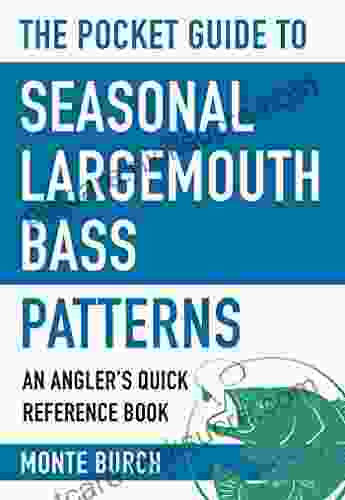
 Marcus Bell
Marcus BellThe Essential Guide to Angler Quick Reference: Your...
Embark on an unforgettable...
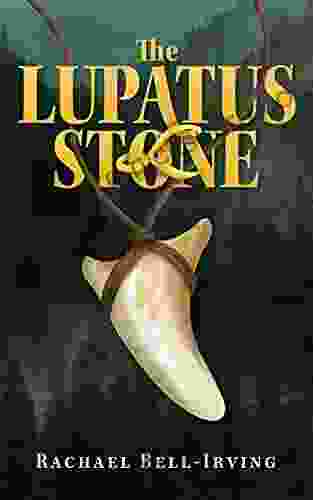
 Juan Butler
Juan ButlerThe Lupatus Stone: A Wicked Conjuring
The Lupatus Stone is a...

 Alvin Bell
Alvin BellUnveiling the Enchanting Memoirs of Lady Hyegyong: A...
In the annals of Korean...
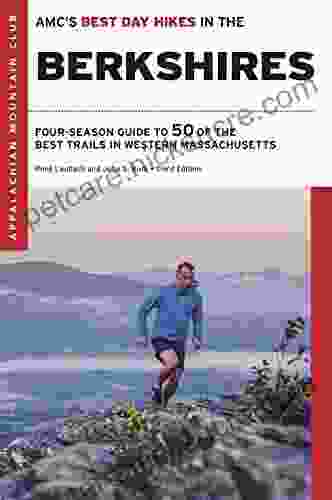
 DeShawn Powell
DeShawn PowellAMC's Best Day Hikes in the Berkshires: Explore Majestic...
The Berkshires, a...
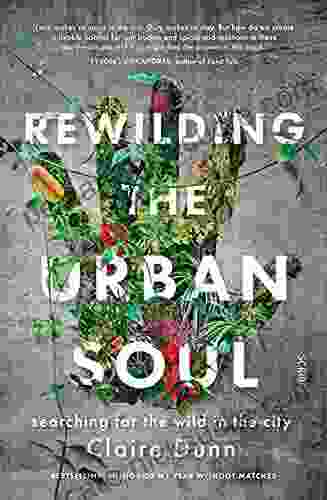
 Clark Campbell
Clark CampbellRewilding The Urban Soul: Reconnecting with Nature in the...
In the heart of sprawling metropolises, where...
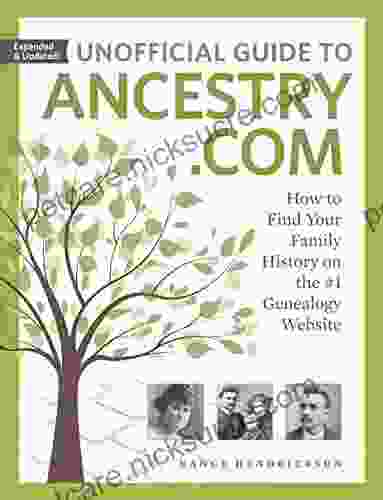
 Cruz Simmons
Cruz SimmonsHow to Find Your Family History on a Genealogy Website: A...
Delving into the...
4.9 out of 5
| Language | : | English |
| File size | : | 4201 KB |
| Text-to-Speech | : | Enabled |
| Screen Reader | : | Supported |
| Enhanced typesetting | : | Enabled |
| Word Wise | : | Enabled |
| Print length | : | 372 pages |


